News
20 February 2023
Creating chaos in battery to extend lifetime
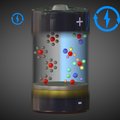
The electric car has made its entrance thanks to the advancement of batteries, and we need batteries to store renewable solar and wind energy until the moment when we need the energy. Currently, the most widely used battery for this purpose is the lithium-ion battery. Researchers from TU Delft now present a new breakthrough in Nature Communications and Advanced Materials that could further improve the life of these batteries.
16 February 2023
Investment in nuclear knowledge infrastructure
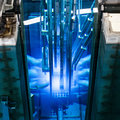
TU Delft has presented an integrated vision of the Netherlands' global position in the nuclear and radiation ecosystem. This ecosystem is a major and crucial contribution to the energy transition, effective healthcare and materials transition.
16 January 2023
In search of the coveted safer, better, longer-lasting battery: BatteryNL kicks off
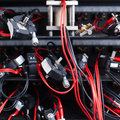
On the 12th of January a large number of parties involved in the development of batteries in the Netherlands – small companies, multinationals and knowledge institutes – attended the kick off of the BatteryNL consortium. Their goal is to develop the next generation of batteries within eight years based on a better understanding of material interfaces.
06 December 2022
Medical experts and engineers speak each other’s language in Delft
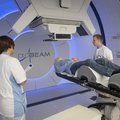
An outpatients’ centre for cancer patients is certainly not the first thing you would expect to encounter on TU Delft campus. ‘But the decision to choose Delft as the location for the Holland Proton Therapy Centre has actually proved to be a very smart move’, says Medical Director Prof. Marco van Vulpen. The location alongside the TU Delft Reactor Institute offers an excellent opportunity for clinicians and engineers to collaborate closely.
29 November 2022
In search of the coveted safe, better, longer-lasting battery: BatteryNL
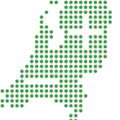
Everyone who works on the development of batteries in the Netherlands, small companies, multinationals and knowledge institutes, has joined together in the BatteryNL consortium to develop the next generation of batteries within eight years based on a better understanding of material interfaces. Prof. M. (Marnix) Wagemaker (TU Delft - Faculty of Applied Sciences) is the project leader of a €9.3 million project funded by NWO-ORC.
22 November 2022
Taking a look at the 3,000-year-old sword
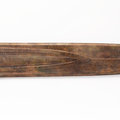
The Ommerschans sword is one of the most important pieces from Dutch prehistory and is part of the collection of the Dutch National Museum of Antiquities. This extraordinary sword has now been examined at the TU Delft Reactor Institute, in search of information about its composition and method of making.
22 November 2022
Fossil free fuels for floating power plants
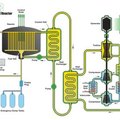
TU Delft, the Netherlands and Seaborg Technologies, Denmark, started a one year project on the investigation of fuel molten salt chemistry for the development of an innovative molten salt nuclear reactor design. The researchers at TU Delft are Dr Anna Smith (Associate Professor) and Lukasz Ruszczynski (Postdoc). Seaborg Technologies’ vision is to deliver clean, cost-competitive, and safe energy with their promising Compact Molten Salt Reactor (CMSR) concept.
20 October 2022
New heat pump material to combat global warming
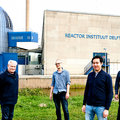
Current coolant gases from air conditioners and fridges either contribute a significant amount to global warming, or otherwise they are dangerous to use. Bowei Huang and Michael Maschek from the Delft company Magneto are working on a safe and environmental friendly alternative for cooling: a unique solid material for heat pumps.
18 October 2022
MIMOSA project develops a multi-recycling strategy for spent nuclear fuels
Anna Smith, Martin Rohde en Danny Lathouwers van het TU Delft Reactor Instituut nemen deel aan het MIMOSA-project dat een multi-recyclingstrategie zal ontwikkelen voor verbruikte splijtstoffen van lichtwaterreactoren op basis van gesmolten-zouttechnologieën.
20 September 2022
New radiolabelling method for personalised cancer treatment
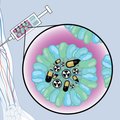
Researchers from TU Delft have found a new method to efficiently make nano carriers loaded with radioactive salts for both medical imaging and treatment. Because the assembly of these nano carriers is incredibly simple, the innovation is very suitable for clinical research and treatments of cancer patients.